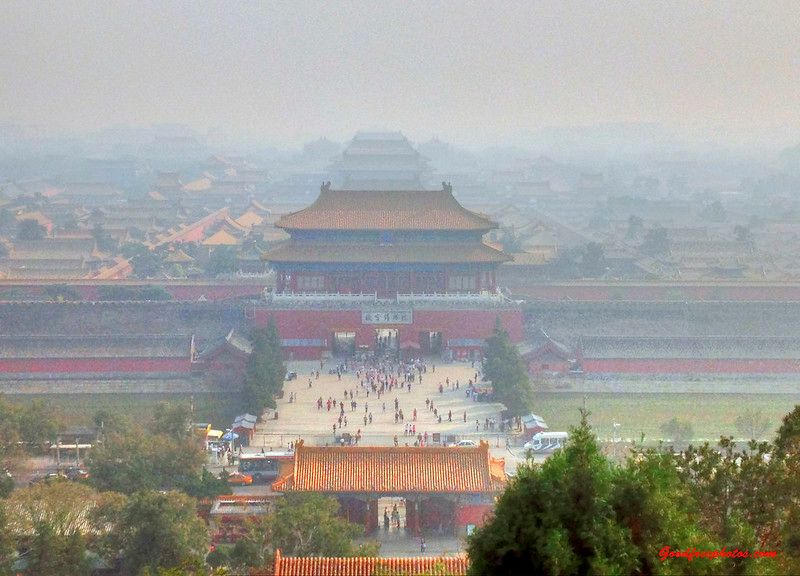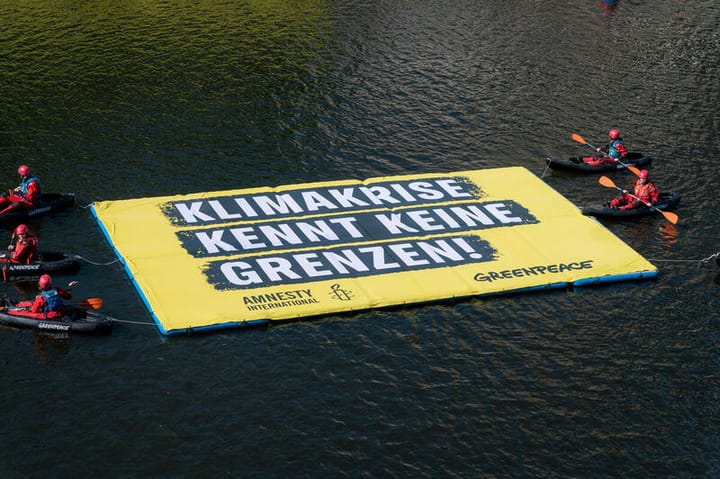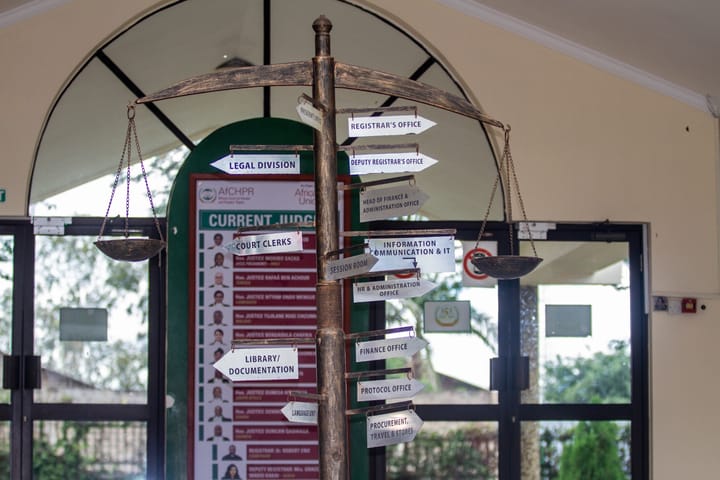Yes, there is climate litigation in China

Activism may be difficult in China, but the courts are a suprisingly welcome venue for environmental lawsuits
Activism has long been difficult in China, a country that has seen clampdowns on communities challenging local pollution problems and a more recent restriction in wider public debate. However, the courts have been a - perhaps surprisingly - welcome venue for environmental lawsuits.
The Chinese courts now hear and decide over 2,000 environmental public interest litigation cases every year, according to a paper in the Journal Of Environmental Law by Lei Xie, an academic at the Institute of Governance in Shandong University, and Lu Xu, of Lancaster University’s law school, “offering a crucial forum for the discussion and examination of China’s evolving environmental governance and practice”.
Most of these lawsuits are brought by public prosecutors, which are not just authorised but encouraged to use litigation as a way of enforcing environmental law. A new system introduced in 2017 for environmental public interest litigation has resulted in thousands of legal challenges responding to environmental problems - many against local government departments that failed to exercise their duties.
Since the advent of a landmark Environmental Protection Law in 2015, which allowed registered societal organisations to file lawsuits, NGOs have increasingly been bringing cases too.
Xie and Xu say this “represents an important development in China’s legal and political reforms, where involving the public serves to improve China’s environmental performance that heavily relied on regulatory policy instruments” as well as strengthening the Communist Party’s rule “with an impression of improving the rule of law”.
They note that NGOs in China are keen to use the law to influence environmental policy, and to hold polluters and governments to account, in a way that has “less potential risks than advocacy activities that may endanger their status”.
However, while there has been an explosion in climate litigation around the world, this has not been the case in the world’s largest polluter.
Climate change laws
One reason for this is that, unlike dozens of other countries, China does not have specific legislation to combat climate change.
President Xi Jinping pledged in September 2020 to the UN General Assembly that the country’s CO2 emissions would peak before 2030 and it would be carbon neutral before 2060.
But such targets have not yet been set in law. This means there is no wider ‘framework’ legislation that can be used to underpin a legal case, as litigants have started to successfully do in countries such as the UK.
Another problem, says Dimitri de Boer, is that litigation in China is largely retrospective.
“The legal framework is based around tort law. So the tort would be that the environment has been injured by a party and then the NGO can litigate on behalf of the environment for that damage done and then some sort of restoration or compensation needs to be figured out to make the environment whole again.”
He compares this to Europe and other parts of the world, where many NGO cases are brought before any harm occurs to the environment, for example in challenging the construction of fossil fuel power plants. This is often pinned on permitting decisions or environmental impact assessments. “But that's not possible in China.”
Until recently, climate litigation in China consisted mainly of contract disputes between energy enterprises and low-carbon industries, according to a 2019 paper in Transnational Environmental Law by a group of Chinese academics.
The paper concludes that, given the limited power of Chinese courts and the strength of the Chinese government, the prospects for successful climate litigation against the government are “very remote”.
However, it does see tort-based litigation that targets carbon emitters directly as a possibility. It says current public interest litigation on air pollution offers a “perfect example” of how such strategies can be successful if government policies promote better air pollution control - either as a gateway to climate litigation or as a substitute since the two issues strongly overlap.
Not just hot air
The first lawsuit to be resolved was brought by the Zhejiang People’s Procuratorate against a company that illegally released freon - a banned ozone-depleting substance - when making insulation materials. Last March, a court ordered the company to pay over 460,000 Yuan (around £50,000) to compensate for the ecological damage it caused, as well as 150,000 Yuan to cover investigation costs.
Although the case is primarily about air pollution, the substances released also contribute to global warming and China’s Supreme People’s Court has cited it as an example of a climate change lawsuit.
An earlier case was brought by environmental NGO Friends of Nature against the state grid in Gansu Province, claiming a breach of renewable energy law because the grid had been buying coal power, forcing local wind power to be curtailed. This has currently reached a sensitive point, where the defendant alleges it is simply following central government orders.
“Cases against government policies that encourage the curtailing of renewable energy, or which encourage fossil fuel consumption, such as fossil fuel subsidies, are clearly possible.” says Dimitri de Boer, Asia regional director of programmes for legal NGO ClientEarth.
De Boer believes that, even in the absence of a dedicated climate law, China could soon witness a series of more focused climate cases.
In the week we spoke, a court concluded that a bitcoin mining contract was invalid in part because of its carbon emissions. Experts told the Wave this was one of the first legal cases in China where climate targets were explicitly mentioned in a final ruling.
“The difficulty with climate litigation in China is that the law is often unspecific as to parties' legal obligations with regard to carbon emission and so on,” says Xu. “But that has not stopped claimants, mostly those progressive environmental NGOs based in Beijing, trying to argue such things in court, often citing non-law policy documents or lofty statements by government and leaders.
“These exert significant political and public opinion pressure on some defendants such as major state-owned enterprises. This sometimes leads to settlement with more pro-climate outcomes, without establishing actual legal obligations, which is a happy compromise for both sides.”
Bring it on
De Boer also points to growing appetite for climate litigation within the Chinese courts.
Last year, the China’s Supreme People’s Court and UNEP organised a conference in Kunming, which emphasised the role of the judiciary in tackling climate change. The resulting Kunming Declaration calls on courts to play a proactive role in tackling climate change, and envisages climate litigation in areas such as carbon reduction, emission trading and green finance.
It also advocates a wider range of judicial measures, including preventative litigation, injunctions against harmful projects and restoration.
De Boer is particularly heartened by a white paper published last year by the Supreme People’s Court, which included for the first time a description of climate litigation, including mitigation and adaptation cases that involve the emission of substances that directly or indirectly affect the climate.
Overall, he anticipates more climate cases brought by China-based NGOs, “but I would be more excited by cases by prosecutors, because they’re so powerful and they have prosecutors all around the country”.
A lawsuit against the central China government is unthinkable. However, de Boer does see potential for claims against provincial governments or cities for approving too many high-emitting projects or following up problems found during environmental disciplinary inspections. “I think for local government it sends a strong signal - you’ve got to get your act together.”
ClientEarth is even exploring how climate change cases could be brought using corporate law, for example around carbon market or finance, or even greenwashing - mirroring the growing trend around the world.
While there will always be criticism of the Chinese government’s motives and approach to environmental matters, de Boer sees the logic in pushing for civil society and individuals to play such an active role. “With just government acting alone, it's quite difficult to actually achieve the best outcome for the environment.”



